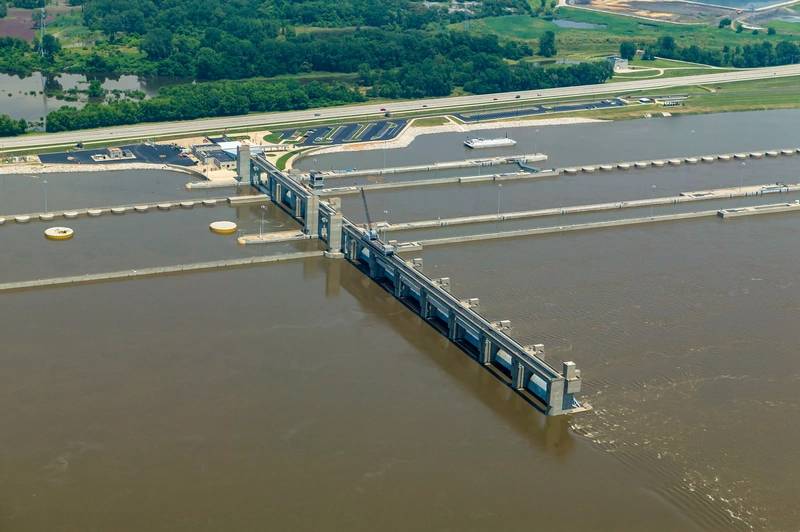Inland Waterways in Focus: Balancing Maintenance and Operational Requirements
The integrity of the marine transportation system as a key plank in a country's economic prosperity is in heightened focus today, with logistics snarls contributing to fast rising inflation. Maintaining the integrity of the vast U.S. inland waterway system - with more than 12,000 miles of inland and intracoastal waterways including 218 lock chambers at 176 sites - is the focus of the Maritime Risk Symposium 2022, a 2.5-day conference scheduled for November 15-17, hostd by Argonne National Laboraty's TCS Conference Center.
On Wednesday, November 16, 2022, James P. Allen, PE, COL(R), US Army Engineer Research and Development Center, will host a session focused on Inland waterways – “nature’s superhighways” - looking at how they provide a strategic advantage related to security, economics, and trade for any nation whose geography, topography, and climate enable this natural infrastructure. Economic benefits are realized in small and urban communities. However, deliberate operational, resource, and policy efforts, along with broad stakeholder integration, are required to maintain and operate such a system.

“Past as Prologue”, Mr. John D. Cheek, Operations and Maintenance Engineer, USACE Inland Navigation and Design Center, Rock Island, IL
Navigation is the USACE earliest Civil Works mission, dating back to Federal laws in 1824 authorizing and funding USACE to improve safety on the Ohio and Mississippi Rivers and several ports. The Inland Navigation Design Center (INDC) provides engineering, design, analysis and review services for studies, new locks, new navigation dams, major rehabilitation of existing inland navigation locks and dams, and significant inland navigation lock and dam operations and maintenance projects.
“Economic and International Trade Implications of the Inland Waterway System”, Mr Guy H. Allen, Senior Economist, International Grains Program, Kansas State University, Manhattan, KS
Commerce and economic drivers make the inland waterway system the life blood of trade for many nations. For more than 35 years, the International Grains Program (IGP) Institute has established a worldwide reputation as a center of excellence for international programs related to flour milling and grain processing, feed manufacturing and grain management, grain marketing and risk management focused on corn, grain sorghum, soybeans and wheat. IGP’s mission is to provide technical, research-based training benefiting industry professionals globally and enhancing the market preference for U.S. grains and oilseeds.
“Inland Waterway System Transportation Resilience and Future Opportunities”, Dr Craig E. Philip, Vanderbilt University, Director, Vanderbilt Center for Transportation and Operational Resiliency (VECTOR), former President/CEO Ingram Barge Company, Nashville, TN
Transportation and operational resiliency are key considerations regarding the inland waterway system. Understanding the interconnectivity and interdependencies in a system-of-systems approach allows holistic risk management for infrastructure owners and maritime transport carriers. Resilience strategies to prevent and protect, withstand, respond, recover, and ultimately adapt to system stress and shocks is the objective of inland waterway stakeholders in industry, government, and academia.
